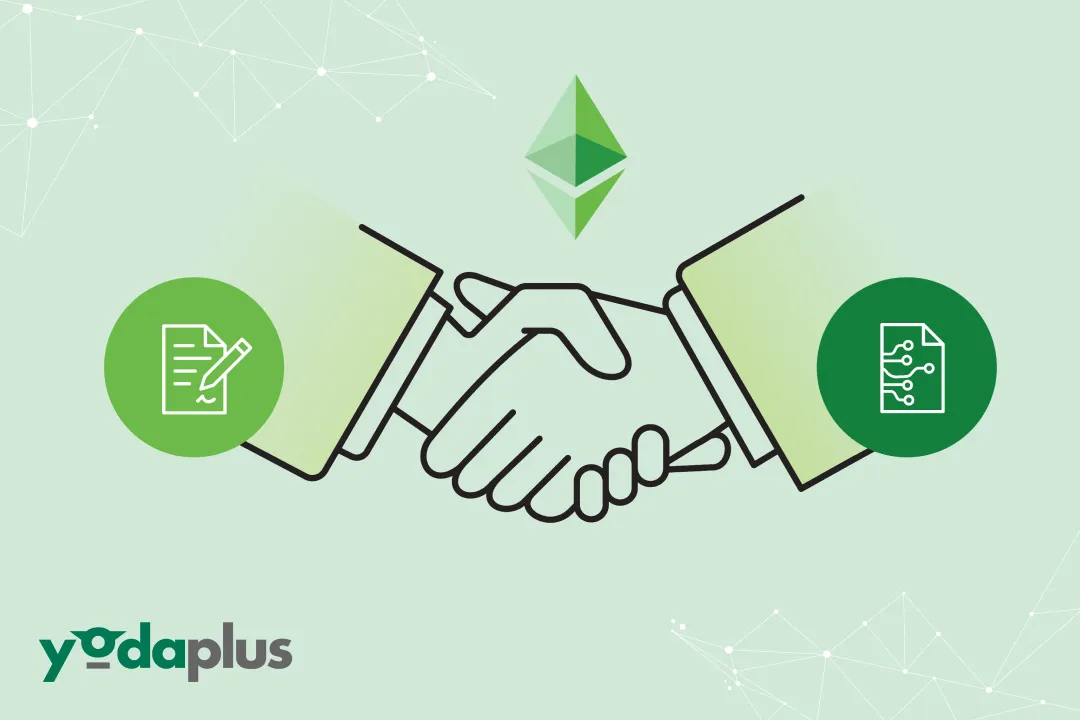Contracts play a significant role in shaping much of our professional and personal lives and are essential for modern society to operate effectively. In the context of blockchain technology, smart contracts serve as a crucial aspect, making transactions safer, more secure, and operating efficiently.
Additionally, smart contracts enhance accessibility of various programs that run on different platforms. Let’s delve deeper into the concept of smart contracts and their benefits.
Smart contracts are computer programs that automatically execute when predetermined conditions are met. They are stored on a blockchain, allowing for the efficient and secure automation of agreements without the need for intermediaries.
This not only saves time, but also ensures immediate confidence in the outcome for all parties involved. Furthermore, smart contracts can streamline workflow by triggering subsequent actions once specific criteria have been satisfied.
Benefits of Smart Contracts
1] Rapid, Efficient, and Error-Free Execution
Smart contracts execute immediately when conditions are met, eliminating the need for manual paperwork and reducing the likelihood of errors.
2] Trustworthy and Transparent
With no involvement of intermediaries, there is no risk of information tampering. Encrypted records of transactions are securely shared between participants.
3] Strong Security
Smart contracts are stored on a blockchain, providing robust encryption and making it extremely difficult for hackers to access or alter records.
4] Cost-Effective
The elimination of intermediaries results in lower costs and reduced time delays, providing cost savings to participants.
How Do Smart Contracts Work ?
Smart contracts operate by executing simple “if/when/then” statements encoded in blockchain technology. Upon the satisfaction and verification of specific conditions, a network of computers executes tasks and updates the blockchain with the completed transaction. This ensures that the transaction cannot be altered and can only be accessed by authorized parties.
To establish the terms of a smart contract, participants must determine the representation of transactions and associated data on the blockchain, agree on the governing “if/when/then” rules, examine all possible exceptions, and devise a process for resolving disputes. With these considerations in place, a developer can then proceed to code the smart contract.
Types of Smart Contracts
1] Smart Legal Contracts
These are legally enforceable agreements that obligate parties to fulfill their agreed upon commitments. In the event of non-compliance, parties may be subject to legal ramifications.
2] Decentralized Autonomous Organizations (DAO)
The smart contract serves as the Decentralized Autonomous Organization’s (DAO’s) backbone. The contract is governed by specific rules encoded in blockchain technology and is equipped with a governance system.
These contracts can be designed for a variety of purposes, ranging from simple to complex, depending on the number of stakeholders involved. Furthermore, actions taken by community members are executed through self-executing code, eliminating the need for manual intervention.
3] Application Logic Contracts (ALC)
Application Logic Contracts (ALCs) are a type of smart contract on the blockchain that enables devices to operate securely and autonomously. ALCs offer increased automation, reduced transaction costs, and scalability.
These contracts incorporate application-specific code that is usually in alignment with other blockchain contracts, and facilitate communication between Internet of Things (IoT) devices and blockchain technology.
In Conclusion
To summarize, the use of blockchain smart contracts is vital for the development of a decentralized economy. These smart contracts offer automated solutions for a range of industries, including finance, insurance, clinical trials, and government procedures.
They provide a unique way of resolving issues and bring a level of innovation to various sectors. By using smart contracts, we can create a fairer, more transparent, and more efficient economy.


